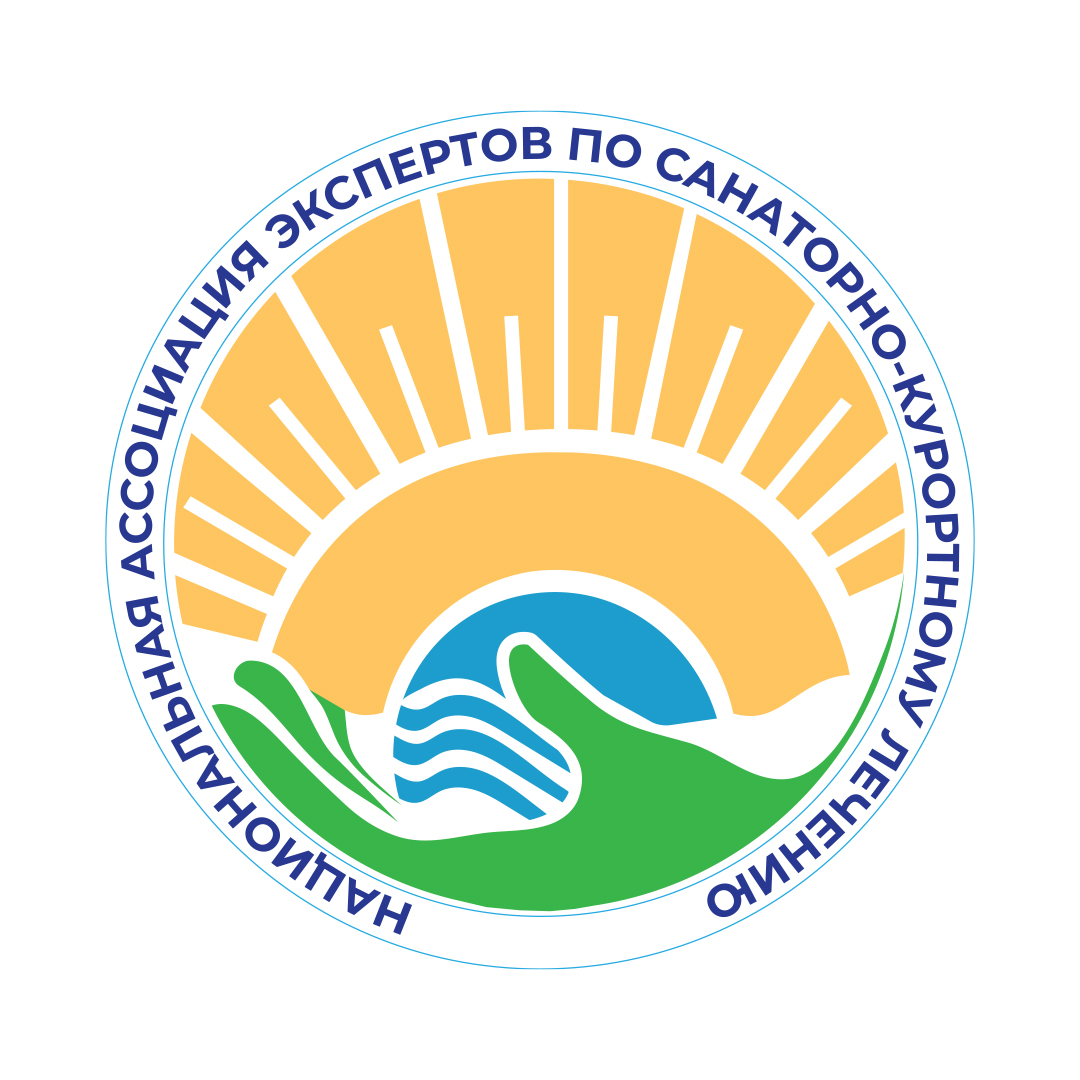Issue 1-22, 2023
Professional Burnout Syndrome in Health Personnel and Social Workers: a Comparative Questionnaire-Based Survey
1 ![]() Olga I. Hohlova, 1,2
Olga I. Hohlova, 1,2 ![]() Elena M. Vasilchenko, 1
Elena M. Vasilchenko, 1 ![]() Vadim A. Versh, 3 Olga B. Lazhintseva, 4 Julia V. Archibasova, 5 Natalya V. Tulkina, 2
Vadim A. Versh, 3 Olga B. Lazhintseva, 4 Julia V. Archibasova, 5 Natalya V. Tulkina, 2 ![]() Marina G. Zhestikova
Marina G. Zhestikova
1 Novokuznetsk Scientic and Practical Centre for Medical and Social Expertise and Rehabilitation of Disabled Persons, Novokuznetsk, Russian Federation
2 Novokuznetsk State Institute of Advanced Medical Training — branch of the Russian Medical Academy of ContinuingProfessional Education, Novokuznetsk, Russian Federation
3 Novokuznetsk Clinical Hospital №1, Novokuznetsk, Russian Federation
4 Committee for Social Protection of the Administration of Novokuznetsk, Novokuznetsk, Russian Federation
5 Complex Centre for Social Service of the Population of the Central District of Novokuznetsk, Novokuznetsk, Russian Federation
ABSTRACT
AIM. To perform the comparative assessment of the prevalence of professional burnout symptoms in health personnel and social workers providing services to persons with pronounced disabilities.
MATERIAL AND METHODS. We conducted a survey of employees in two medical institutions (healthcare workers, Group 1, n = 86) and employees in a social service institution (social workers, Group 2, n = 89). The presence of professional burnout was established using Maslach Burnout Questionnaire adapted by N. Vodopyanova.
RESULTS AND DISCUSSION. Signs of professional burnout of different severity were found in 96,6 % of the respondents. High and extremely high levels of psychoemotional exhaustion, depersonalization, reduction of personal achievements were more frequent among health personnel than among social workers: 1,9 times (p = 0,012), 1,6 times (p = 0,033), 2,9 times (p = 0,029) respectively. At the same time, 31.4 % of Group 1 and 7.9 % of Group 2 respondents indicated overwork due to understaffing; 29.1 % and 10.1 %, respectively, indicated frequent need for additional work due to the temporary absence of colleagues. It explains higher levels of professional burnout among employees of medical institutions. At the same time, Group 2 was characterized by a younger age (by 6.5 years on average, p = 0.006) and a shorter work experience in the institution (by 10 years on average, p < 0.001) compared to Group 1, which may indicate both «staff turnover» among social workers and the appearance of conditions in the social service sphere attractive for younger age specialists.
CONCLUSION. Health personnel have higher levels of the professional burnout symptoms more often than social workers, that is probably connected with an increased intensity of labour and overwork.
KEYWORDS: professional burnout; psychoemotional exhaustion; depersonalization; health personnel; social workers
FOR CITATION: Hohlova O.I., Vasilchenko E.M., Versh V.A., Lazhintseva O.B., Archibasova J.V., Tulkina N.V., Zhestikova M.G. Professional Burnout Syndrome in Health Personnel and Social Workers: a Comparative Questionnaire-Based Survey. Bulletin of Rehabilitation Medicine. 2023; 22(1): 87-97. https://doi.org/10.38025/2078-1962-2023-22-1-87-97
FOR CORRESPONDENCE: Olga I. Hohlova, E-mail: hohlovaoliv@rambler.ru, root@reabil-nk.ru
References:
- Maggio M.G., Manuli A., Andaloro A., Chirieleison A., La Rosa G., Sciarrone F., Trinchera A., Calabrò RS. Improving Healthcare Professional Psychological Well-being in Neurorehabilitation: An Exploratory Study Focusing on Work Stress. Innovations in Clinical Neuroscience. 2021; 18(7-9): 21-28.
- Maresca G., Corallo F., Catanese G., Formica C., Lo Buono V. Coping Strategies of Healthcare Professionals with Burnout Syndrome: A Systematic Review. Medicina (Kaunas). 2022; 58(2): 327. https://doi.org/10.3390/medicina58020327
- Xie X., Zhou Y., Fang J., Ying G. Social Support, Mindfulness, and Job Burnout of Social Workers in China. Frontiers in Psychology. 2022; (13): 775679. https://doi.org/10.3389/fpsyg.2022.775679
- Kolosova O., Remizova K. Socio-psychological conditions of preventing emotional burnout of social workers. Journal of the University. 2018; (7): 156-152. https://doi.org/10.26425/1816-4277-2018-7-156-162 (In Russ.).
- Shalaby R., Oluwasina F., Eboreime E., El Gindi H., Agyapong B., Hrabok M., Dhanoa S., Kim E., Nwachukwu I., Abba-Aji A., Li D., Agyapong V.I.O. Burnout among Residents: Prevalence and Predictors of Depersonalization, Emotional Exhaustion and Professional Unfulfillment among Resident Doctors in Canada. International Journal of Environmental Research and Public Health. 2023; 20(4): 3677. https://doi.org/10.3390/ijerph20043677
- Koutsimani P., Montgomery A., Georganta K. The Relationship Between Burnout, Depression, and Anxiety: A Systematic Review and Meta- Analysis. Frontiers in Psychology. 2019; (10): 284. https://doi.org/10.3389/fpsyg.2019.00284
- Patel R.S., Bachu R., Adikey A., Malik M., Shah M. Factors related to Physician Burnout and its consequences: a review. Behavioral Sciences. 2018; 8(11): 98. https://doi.org/10.3390/bs8110098
- West C.P., Dyrbye L.N., Shanafelt T.D. Physician burnout: contributors, consequences and solutions. Journal of Internal Medicine. 2018; 283(6): 516- 529. https://doi.org/10.1111/joim.12752
- Woo T., Ho R., Tang A., Tam W. Global prevalence of burnout symptoms among nurses: a systematic review and meta-analysis. Journal of Psychiatric Research. 2020; (123): 9-20. https://doi.org/10.1016/j.jpsychires.2019.12.015
- Correia I., Almeida A.E. Organizational justice, professional identification, empathy, and meaningful work during COVID-19 pandemic: are they burnout protectors in physicians and nurses? Frontiers in Psychology. 2020; (11): 566139. https://doi.org/10.3389/fpsyg.2020.566139
- Pantenburg B., Luppa M., König H.-H., Riedel-Heller S.G. Burnout among young physicians and its association with physicians’ wishes to leave: results of a survey in Saxony, Germany. Journal of Occupational Medicine and Toxicology. 2016; (11): 2. https://doi.org/10.1186/s12995-016-0091-z
- Hamidi M.S., Bohman B., Sandborg C., Smith-Coggins R., de Vries P., Albert M.S., Murphy M.L., Welle D., Trockel M.T. Estimating institutional physician turnover attributable to self-reported burnout and associated financial burden: a case study. BMC Health Services Research. 2018; 18(1): 851. https://doi.org/10.1186/s12913-018-3663-z
- Han S., Shanafelt T.D., Sinsky C.A., Awad K.M., Dyrbye L.N., Fiscus L.C., Trockel M., Goh J. Estimating the attributable cost of physician burnout in the United States. Annals of Internal Medicine. 2019; 170(11): 784-790. https://doi.org/10.7326/M18-1422
- Velando-Soriano A., Cañadas G.R., Monsalve-Reyes C.S., Romero-Béjar J.L., Esquivel F.J., De la Fuente-Solana E.I., Cañadas-De la Fuente G.A. Personality Factors as Predictors in Burnout Level Changes for Surgical Area Nurses. Brain Sciences. 2022; 12(11): 1481. https://doi.org/10.3390/ brainsci12111481
- Rotenstein L., Torre M., Ramos M., Rosales R., Guille C., Sen S., Matal D.A. Prevalence of burnout among physicians. JAMA. 2018; 320(11): 1131-1150. https://doi.org/10.1001/jama.2018.12777
- Hewitt D.B., Ellis R.J., Hu Y.Y., Cheung E.O., Moskowitz J.T., Agarwal G., Bilimoria K.Y. Evaluating the Association of Multiple Burnout Definitions and Thresholds with Prevalence and Outcomes. JAMA Surgery. 2020; 155(11): 1043-1049. https://doi.org/10.1001/jamasurg.2020.3351
- Huang C., Xie X., Cheung S.P., Zhou Y., Ying G. Job Demands, Resources, and Burnout in Social Workers in China: Mediation Effect of Mindfulness. International Journal of Environmental Research and Public Health. 2021; 18(19): 10526. https://doi.org/10.3390/ijerph181910526
- Vodopyanova N. Psihodiagnostika stressa. Saint Petersburg: Peter. 2009: 336 p. (In Russ.).
- Maslach C., Leiter M. Understanding the burnout experience: Recent research and its implications for psychiatry. World Psychiatry. 2016; 15(2): 103-111. https://doi.org/10.1002/wps.20311
- Qedair J.T., Balubaid R., Almadani R., Ezzi S., Qumosani T., Zahid R., Alfayea T. Prevalence and factors associated with burnout among nurses in Jeddah: a single-institution cross-sectional study. BMC Nursing. 2022; 21(1): 287. https://doi.org/10.1186/s12912-022-01070-2
- Wang C., Grassau P., Lawlor P.G., Webber C., Bush S.H., Gagnon B., Kabir M., Spilg E.G. Burnout and resilience among Canadian palliative care physicians. BMC Palliative Care. 2020; 19(1): 169. https://doi.org/10.1186/s12904-020-00677-z
- Kobyakova O., Deyev I., Kulikov E., Homyakov K., Pimenov I., Zagromova T., Balaganskaya M. Professional Burnout of physicians in the Russian Federation according to Tomsk model. Social Aspects of the Population’s Health. 2017; (55): 11 p. (In Russ.).
- Alieva B., Ahmedova N., Rashidova A. Professional competence of the social worker as a condition of preventing professional deformation. Mir nauki, kultury, obrazovaniya. 2019; 3(76): 218-219 (In Russ.).
- Wazqar D.Y. Oncology nurses’ perceptions of work stress and its sources in a university-teaching hospital: A qualitative study. Nursing Open. 2018; 6(1): 100-108. https://doi.org/10.1002/nop2.192
- Alwhaibi M., Alhawassi T.M., Balkhi B., Al Aloola N., Almomen A.A., Alhossan A., Alyousif S., Almadi B., Bin Essa M., Kamal K.M. Burnout and Depressive Symptoms in Healthcare Professionals: A Cross-Sectional Study in Saudi Arabia. Healthcare. 2022; 10(12): 2447. https://doi.org/10.3390/healthcare10122447
- Shanafelt T.D., West C.P., Sinsky C., Trockel M., Tutty M., Wang H., Carlasare L.E., Dyrbye L.N. Changes in Burnout and Satisfaction with Work- Life Integration in Physicians and the General US Working Population Between 2011 and 2020. Mayo Clinic Proceedings. 2022; 97(3): 491-506. https://doi.org/10.1016/j.mayocp.2021.11.021
- Johnson A., Jayappa R., James M., Kulni A., Kovayil R., Joseph B. Do Low Self-Esteem and High Stress Lead to Burnout among Health-Care Workers? Evidence From a Tertiary Hospital in Bangalore, India. Safety and Health at Work. 2020; 11(3): 347-352. https://doi.org/10.1016/j.shaw.2020.05.009
- Jesus A., Pitacho L., Moreira A. Burnout and Suicidal Behaviours in Health Professionals in Portugal: The Moderating Effect of Self-Esteem. International Journal of Environmental Research and Public Health. 2023; 20(5): 4325. https://doi.org/10.3390/ijerph20054325
- Ghazwani E.Y. Prevalence and Determinants of Burnout Among Palliative Care Clinicians in Saudi Arabia. Frontiers in Public Health. 2022; (9): 834407. https://doi.org/10.3389/fpubh.2021.834407
- Johnson A.R., Jayappa R., James M., Kulnu A., Kovayil R., Joseph B. Do Low Self-Esteem and High Stress Lead to Burnout Among Health- Care Workers? Evidence From a Tertiary Hospital in Bangalore, India. Safety and Health at Work. 2020; 11(3): 347-352. https://doi.org/10.1016/j.shaw.2020.05.009

The content is available under the Creative Commons Attribution 4.0 License.
©
This is an open article under the CC BY 4.0 license. Published by the National Medical Research Center for Rehabilitation and Balneology.




